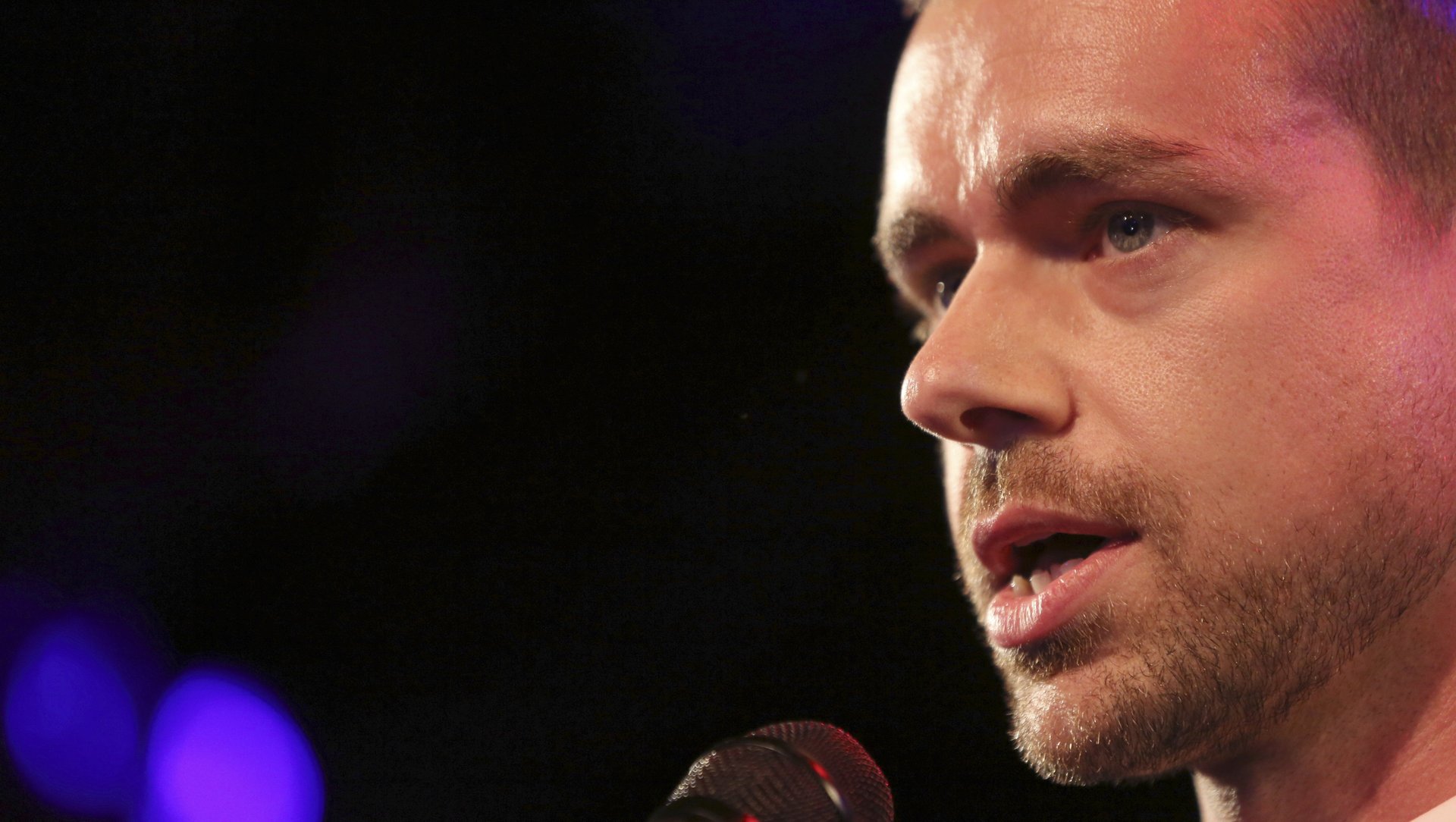Twitter’s board needs to get over the fact that Jack Dorsey is running two companies
Investors are growing impatient as Twitter’s CEO search drags on past 100 days. Jack Dorsey—the social network’s cofounder, chairman, former CEO, and current interim CEO—appears to be the top contender, but the board is hung up on the fact idea he won’t fully commit to Twitter.


Investors are growing impatient as Twitter’s CEO search drags on past 100 days. Jack Dorsey—the social network’s cofounder, chairman, former CEO, and current interim CEO—appears to be the top contender, but the board is hung up on the fact idea he won’t fully commit to Twitter.
Dorsey, of course, is also the chief executive of payment processing company Square, which is currently on the IPO track. And according to recent reports, he’s been telling Square’s management he has no intention of giving up the top job there. In June, shortly after then-CEO Dick Costolo stepped down, Dorsey said in a statement, “I’m Square CEO, and that won’t change.“
Though rare, it’s not unheard of for a person to run two large companies. That’s what Steve Jobs did with Apple and Pixar, though he described it as “the worst time in [his] life.” Elon Musk, CEO of Tesla and SpaceX, put it more mildly: “It is quite difficult to be CEO at two companies.”
Fully committed or not, Dorsey is exactly what Twitter needs at the moment as it struggles to grow and monetize its user base. He comes into the CEO role intimately familiar with its product and struggles, and he’s a leader employees respect and are willing to rally behind. Analysts, likewise, have been pining for his return, and it wouldn’t be surprising if an announcement naming Dorsey as CEO were greeted with a spike in share price. (Twitter’s stock is currently trading close to its IPO price, a big drop over the last year and a half.)
In a recent report, Robert Peck, an analyst at SunTrust Robinson Humphrey, made the case for Dorsey, highlighting how the company is rolling out updates quicker under his leadership. He also suggests that Twitter’s senior execs would be resistant to working for an outsider.
“At this point, some investors believe the board needs to come to terms with having a CEO who is also CEO of another company,” said Peck. “We think Mr Dorsey as CEO is expected and supported by shareholders at this point.”
The delay in naming a permanent CEO, and the frustrations that accompany it, could spark a shakeup in Twitter’s board. Using two metrics—number of tweets and equity ownership—Peck identified two prime targets: Peter Currie (98 tweets, 383,581 total shares) and Marjorie Scardino (eight tweets, 14,352 shares). Currie, along with Ev Williams and Peter Fenton, is on the search committee to find a permanent CEO.
Though number of tweets isn’t a perfect metric, it does reveal how out of touch Currie and Scardino are with the product. The lack of ownership also signals to outsiders a detachment from the company since they don’t have real “skin in the game,” said Peck.
Twitter’s board would benefit greatly with the addition of media-tech experts (someone like Buzzfeed CEO Jonah Peretti, for example) who know how to build successful businesses capitalizing on social media and how to keep people coming back for more. After all, Twitter’s big challenge ahead is convincing people who see its tweets to actually sign up for an account, which will mean more people looking at ads. But at the moment it’s having a tough time conveying the value of its service—which, perhaps, is lost on Currie and Scardino as well.